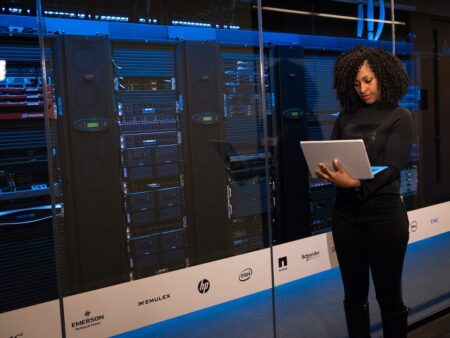With the rise of remote work, having a reliable laptop is essential for productivity and efficiency. A well-chosen laptop can enhance your work experience, enabling you to complete tasks seamlessly while providing the necessary tools for communication and collaboration. This guide will help you navigate the key features to consider when selecting the right laptop for your remote work needs.
Assess Your Work Requirements
Before diving into specifications, it’s crucial to assess your specific work requirements. Consider the nature of your job—are you primarily handling documents and spreadsheets, or do you need to run resource-intensive software such as graphic design tools or video editing programs?
For general office tasks like email, web browsing, and document editing, a basic laptop with moderate specifications will suffice. However, if your work involves programming, graphic design, or video conferencing, you’ll need a more powerful machine.
Key Specifications to Consider
Processor
The processor is the heart of your laptop and significantly impacts performance. Look for laptops with modern Intel Core (i5 or i7) or AMD Ryzen (5 or 7) processors, as they offer robust performance for multitasking and running demanding applications. For basic tasks, a laptop with an Intel Core i3 or AMD Ryzen 3 processor should suffice.
RAM
Random Access Memory (RAM) is crucial for multitasking. For remote work, aim for a minimum of 8 GB of RAM. This allows you to run multiple applications smoothly without slowdowns. If your work involves heavy multitasking or running resource-intensive programs, consider upgrading to 16 GB or more.
Storage
Choosing the right storage type and capacity is essential for performance and convenience. Solid State Drives (SSDs) are faster and more reliable than traditional Hard Disk Drives (HDDs), significantly improving boot times and application loading. Aim for at least 256 GB of SSD storage for adequate space for applications and files. If you deal with large files regularly, consider a laptop with 512 GB or more.
Battery Life and Portability
Battery life is a critical factor for remote work, especially if you often work from various locations. Look for laptops that offer at least 8 hours of battery life to ensure you can work through the day without needing to recharge frequently. Additionally, consider the laptop’s weight and size; lightweight and slim models are more portable and easier to carry around.
Display Quality
A high-quality display enhances your work experience, especially for tasks involving visuals or extended periods of use. Look for laptops with Full HD (1920 x 1080) resolution for clear and sharp images. If your work involves graphic design or video editing, consider laptops with higher resolutions or color-accurate displays.
Connectivity Options
Remote work often involves communication and collaboration tools. Ensure your laptop has sufficient connectivity options, including USB-A, USB-C, HDMI, and an audio jack. A built-in SD card reader can also be beneficial for transferring files from cameras or other devices. Wi-Fi 6 capability is a plus, offering faster internet speeds and better performance in crowded networks.
Operating System
The operating system you choose can influence your productivity. Windows, macOS, and Chrome OS are popular options, each with its advantages. If your work relies on specific software, ensure it’s compatible with your chosen OS. For instance, many creative applications run best on macOS, while Windows offers extensive software support for business applications.
Additional Features
Consider additional features that can enhance your remote work experience. A comfortable keyboard and responsive trackpad are essential for long hours of use. Backlit keyboards are helpful for working in low-light environments.
Built-in webcams and microphones are crucial for video conferencing, so ensure the laptop you choose has good-quality hardware for clear communication. Some laptops also come with privacy features, such as a physical webcam cover, to enhance security.
Budget Considerations
Finally, set a budget that aligns with your needs and financial situation. While it’s tempting to go for the cheapest option, investing in a higher-quality laptop can pay off in terms of performance and longevity. Consider the long-term value and how the laptop will support your remote work tasks.
Choosing the right laptop for remote work requires careful consideration of your specific needs, the key specifications that will support your tasks, and your budget. By assessing your work requirements and understanding the importance of processor power, RAM, storage, battery life, display quality, and connectivity options, you can make an informed decision. With the right laptop, you’ll be well-equipped to thrive in your remote work environment, ensuring productivity and efficiency.




